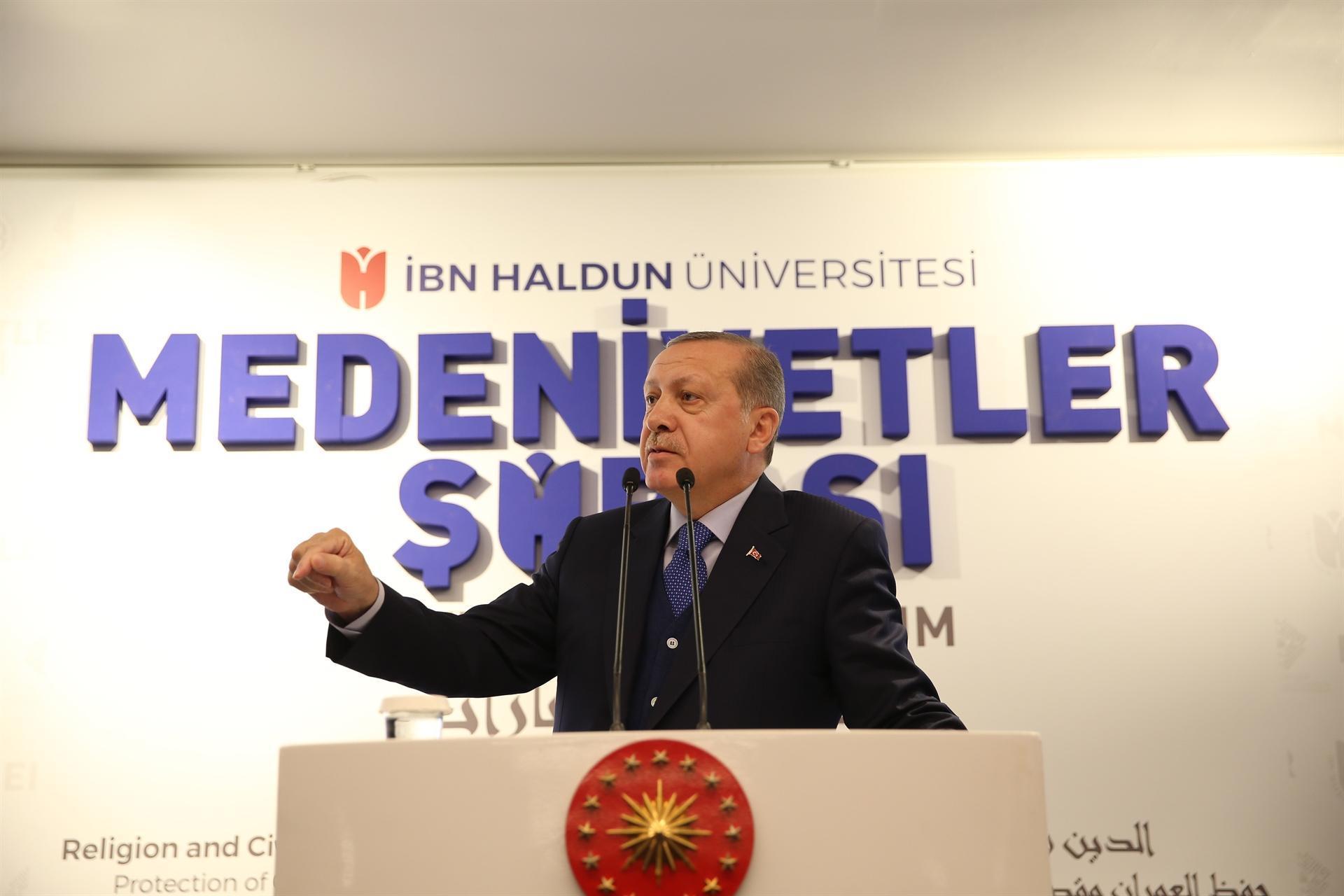I cannot call US civilized after detention warrants for bodyguards: Erdoğan
ISTANBUL

President Recep Tayyip Erdoğan said on Oct. 21 that the U.S. could not be called a civilized country after detention warrants issued for his security guards over brawling incidents in Washington during his visit five months ago.
"If America issues arrest warrants for my 13 bodyguards in a country where I went upon invitation, I'm sorry, but I will not say that country is civilized," Erdoğan said at the Civilizations Forum at Ibn Haldun University in Istanbul.
On June 15, the U.S. issued warrants for 16 people including Erdoğan's bodyguards allegedly linked with a brawl outside the Turkish embassy in Washington during the Turkish president's visit in May.
He claimed that the outlawed Kurdistan Workers’ Party (PKK) and members of the Fethullahist Terror Organization (FETÖ) were united in protest against him at a short distance of 40-50 meters from where he was with his bodyguards.
"They [security guards] took measures for us. And even two of them [guards] were not even there. Can there be such justice?" Erdoğan added.
Erdoğan also criticized U.S. President Donald Trump's policy regarding Muslims saying Turkey never closed its doors to people who thought differently.
"Muslims in America are facing expulsion so it means there is a problem in the country," he said.
The Trump administration laid out late last month new restrictions to replace Trump's previous travel ban, which was set to expire, adding two non-Muslim-majority countries to the list of designated nations while dropping Sudan.
The countries that face travel restrictions under Trump's new order are Chad, Iran, Libya, North Korea, Somalia, Venezuela and Yemen.
They were designated because they have either not met higher screening and information sharing requirements or present what officials call sufficient risk factors.
This latest attempt to curtail immigration to the U.S. was dealt a legal setback after a Hawaii judge ruled Tuesday that it suffers from the same legal deficiencies as his previous directives.
The ban was set to go into effect within hours when U.S. District Judge Derrick Watson said in his ruling that Trump's latest executive order "suffers from precisely the same maladies as its predecessor".
















